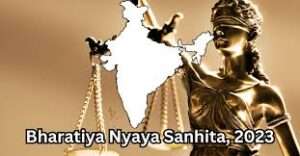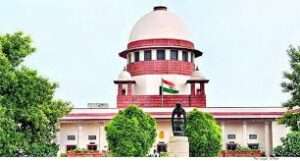
This article has been written by Sanju Jha, pursuing Ba. Llb from Rnb Global University, Bikaner.

INTRODUCTION
The rule against perpetuity is a legal principle that governs the transfer of property in India. It is enshrined in Section 14 of the Transfer of Property Act, 1882. The rule restricts the transfer of property by way of a contingent interest or a future interest that is not certain to vest within a prescribed period. The main purpose of this rule is to prevent the creation of property right that may continue indefinitely in the future.
DEFINATION
The rule against perpetuity is legal principle that limits the transfer of property by way of a contingent or future interest. The rule provides that no interest in property shall be created that is not certain to vest within a period of life in being and 21 years thereafter.
In Re: Venkata Subbiah, the court held that a trust for a religious purpose was not void under the rule against perpetuity. The trust was created to maintain a temple and provide for the performance of religious ceremonies and the court held that the trust was not subject to the rule because it was for charitable purpose (under section 18).
EXPLAINTION OF RULE AGAINST PERPETUITY
The rule against perpetuity is based on the common law principle that the property should not be tried up in the perpetuity. The rule applies to all transfer of properties including gifts, sale lease, mortgages and bequests. It is intended to prevent the creation of future interest that is too remote and uncertain to be enforced.
The rule operates by imposing a time on the vesting of contingent or future interests. The time limit is generally the life of a person in being at the time the interest is created plus twenty one years. If the interest is not certain to vest within this period, it is void.
EXCEPTION
There are certain exceptions to the rule against perpetuity. These include:-
- Charitable trusts – The rule against perpetuity does not apply to charitable trusts. Charitable trusts are created for the charitable purpose, such as the relief of poverty, the advancement of education, or the promotion of religions.
- Transfer for benefit of Unborn person (under section 13) – The rule against perpetuity does not apply to transfer made for benefit of unborn persons. For example, if a person transfers property to trust for the benefit of his or her unborn grandchildren, here the rule against perpetuity will not apply.
In Bai Diwali V. Mahadeo, the court held that a gift that was transfer to an unborn person was void under the rule against perpetuity. The gift was made to the unborn son of the done, and the court held that the gift violated the rule because it was uncertain whether the son would be born within the prescribed period.
- Transfer in exercise of a power of appointment – The rule against perpetuity does not apply to transfer made in exercise of power of appointment. A power of appointment is power given to a person to appoint property to certain beneficiaries.
- Lease – The rule does not apply to lease of property for a term not exceeding twenty years. In the case of Raja Mohammad Amir Ahmad Khan V Municipal Board of Sitapur, the court held that a lease for a term of more than twenty years was void under the rule against perpetuity. The lease was the term of ninety nine years and the court held that the lease violated the rule because it extended beyond the prescribed periods.
- Options to purchase property – The rule against of perpetuity does not apply to options to purchase property, provided the option is exercised within the prescribed period.
PENALTY FOR VIOLATION OF RULE AGAINST PERPETUITY
If the transfer of property violates the rule against perpetuity, the interest is created is void. The property will revert to the transferor or his or her heirs. In addition, any subsequent interest that depends on the void interest will also be void.
There are various ways in which the rule against perpetuity can be violated and some of the most common violation include-,
- Interest that may vest too far into the future – Any interest in property that may not vest within a prescribed period of time, which is usually 21 years after the death of a person who was alive at the time of the transfer, may violate the rule against perpetuity.
- Restraints on alienations – Any condition that prohibit or restrict the transfer of property beyond the prescribed period may also violate the rule against perpetuity. For example, a transfer of property that requires the done to hold the property for a specific period of time before transferring it to another person may violate the rule.
- Uncertain conditions – Any condition that is too uncertain or vague to be enforced may also violate the rule against perpetuity. For example, a transfer of property that is made subject to a condition that is made on the happening of an uncertain event, such as the birth of a particular person, may violate the rule
OBJECT
It is important to ensure free and active circulation of property both for trade and commerce as well as for the betterment of the property. There are people who want to retain their property in their own families from generations to generations. This will be a loss to the society because it will be deprived of any benefit arising out of that property. Free and frequent circulation is important and the policy of law is prevents the creation of such perpetuity.
Thus, the object of Section.14 is to see that the property is not tied up and to prevent creation of perpetuity.
ESSENTIAL INGREDIENTS
The following ingredient must be present to attract the provision of the Section.14 –
- There must be transfer of property.
- The transfer should be to create an interest in favour of unborn must be preceded by life or limited of living person (i.e prior interest holder).
- The unborn person must be in existence (either in the mother’s womb or born) at the expiration of the interest of the living person.
In all the above ingredients are present then the vesting of the interest in favour of the ultimate beneficiary may be postponed only up to the life or lives of living person plus the minority of the ultimate beneficiary but not beyond that.
CONCLUSION
The rule against perpetuity is an important legal principal that governs the transfer of property in India. It is intended to prevent the creation of future interests that are too remote and uncertain to be enforced. The rule imposes a time limit on the vesting of contingent or future interests and any interest that violates the rule is void. There are certain exceptions to the rule such as transfer for charitable purpose, transfers for benefit of unborn persons and the transfers made in exercise of a power of appointment.







